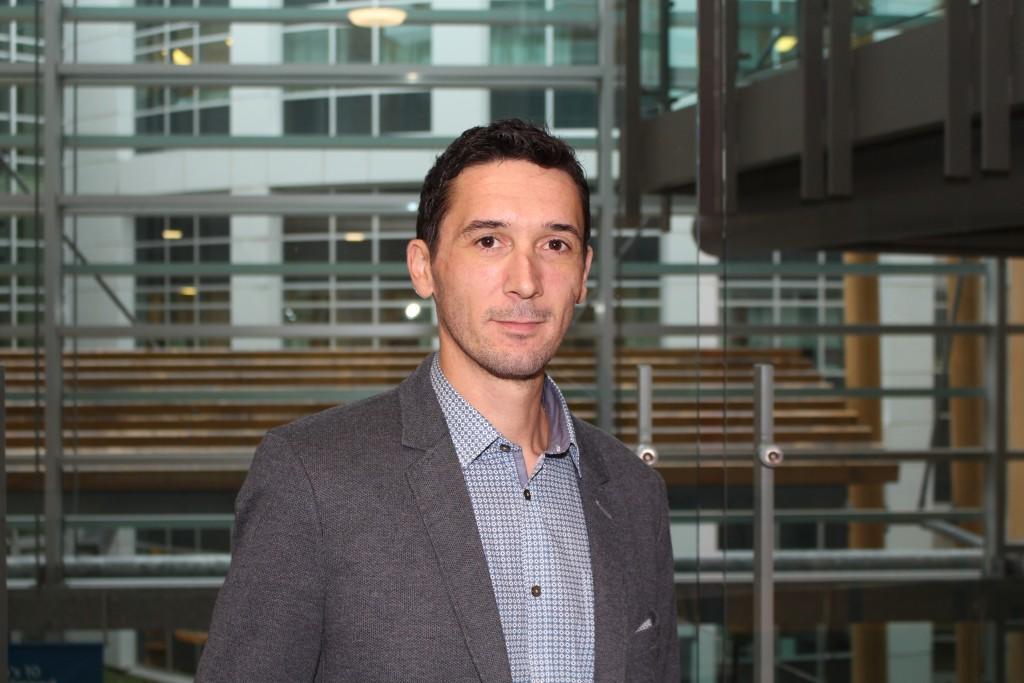Nurse Practitioner Spotlight: Christian Popa
by Maryanne Matthews
 We asked a few members of the NP team at our Health Sciences Centre to share thoughts about their role and experience. This week, we’re featuring Christian Popa.
We asked a few members of the NP team at our Health Sciences Centre to share thoughts about their role and experience. This week, we’re featuring Christian Popa.A Nurse Practitioner (NP) is a nurse with advanced university education who works both independently and in collaboration with other health professionals to provide patients and families with quality health care services. Ontario has more than 2,000 Nurse Practitioners who work in a diverse range of community and hospital settings across the province.
We asked a few members of the NP team at our Health Sciences Centre to share thoughts about their role and experience. This week, we’re featuring Christian Popa.
Education /Training
Bachelor of Science in Nursing, Primary Health Care Nurse Practitioner, Trauma Nursing Core Course Instructor, Advanced Cardiac Life Support, Pediatric Advanced Life Support.
Why did you decide to become a Nurse Practitioner?
Ever since I was in undergrad I knew I wanted to work in the emergency department and I made every possible effort to accomplish that. After working in the emergency department for a number of years I realized I really enjoy the medical aspect of patient care. It is very satisfying seeing patient’s health improve almost immediately because a procedure that was done or medication that was given. The nurse practitioner role offers the balance I was looking for, an independent practitioner with a more in-depth medical knowledge of the “hows” and “whys” I needed. I become a nurse practitioner for my personal development, life-long learning, and to make a difference to the people of Northwestern Ontario.
Tell us about your role with the Trauma and Acute Care Surgery
I work collaboratively with the Trauma / Acute Care Surgery attending physicians and surgical residents to ensure continuity of care to our trauma and acute surgical patients. I help plan, implement, and evaluate health care treatments. I admit and discharge patients, round on trauma and acute surgical patients daily, consult different specialties as necessary, perform a variety of procedures, monitor patient progress, and provide patient and family education as well as nursing staff education. I work closely with our multidisciplinary team to coordinate the discharge or transfer process and ensure our patients have a safe and timely transition to community or regional hospitals. I also follow-up in our outpatient clinic with trauma patients that have been discharged home to ensure resolution of their illness, refill prescriptions, repeat blood work and diagnostic imaging, and avoid repeat emergency visits. In addition to direct clinical care and education, I am also involved in research studies and policy development here at the hospital.
What is the most challenging part of your profession?
It’s upsetting to see how a lot of traumatic injuries can be avoided. We have a fantastic program here at our Health Sciences Centre called the P.A.R.T.Y. program, which educates high school students about risky behaviours and focuses on making smart choices to avoid traumatic injuries. I would love to see more programs in the community that provide this type of education not only to high school students but adults as well.
What is the most rewarding aspect of your profession?
It is very rewarding to follow up with the trauma patients I discharge, seeing how well they recover, and the difference we make as a team in patient care. I’m very fortunate to work with a fantastic group of people that embrace my role as a nurse practitioner; from the attending physicians, residents, and nursing staff to management.
Advice for those considering a career as a Nurse Practitioner?
I think it is very important to ensure you really enjoy what you are doing. Becoming a nurse practitioner can be both exhilarating and overwhelming at the same time. It would be a really good idea to seek work experience in areas of nursing that would give you a wide range of clinical experience before applying for the NP program. The NP program may be tough but it is very rewarding at the end. Once you graduate, you are an independent practitioner and have the choice to work in any specialty that interest you.